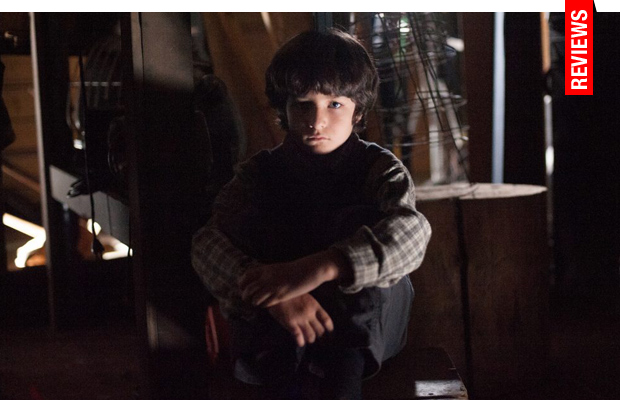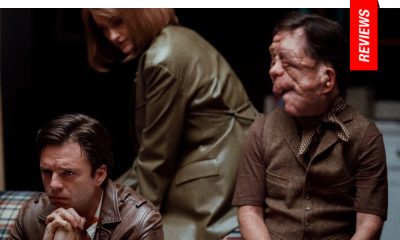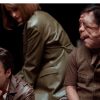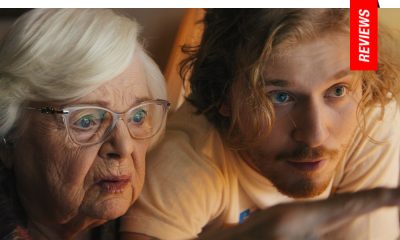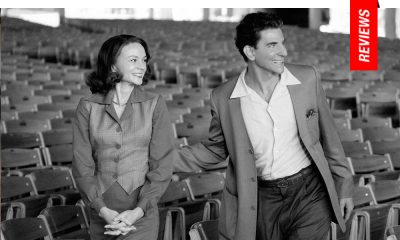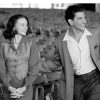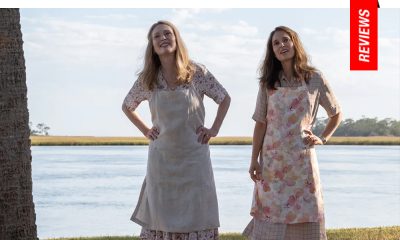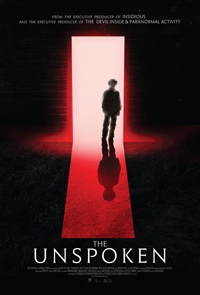Reviews
The Unspoken | Review
Here We Are Again: Wilson’s Last Hell House in the Town that Dreaded the Woods
There are quite a considerable amount of mediocre movies in filmmaker Sheldon Wilson’s catalogue. He emerged from his roots in SyFy schlock to helm his latest tedious and unintentionally self-sardonic entry into the horror genre. Though considerably more finely crafted than previous laughably poor works like Killer Mountain (2011), The Unspoken still retains Wilson’s signature bland overuse of horror cliches, awarding this tawdry effort with far more cringes than scares.
Beginning in 1997, the Briar House is the setting for a family vanishing without a trace, leaving a manic maid and a dead priest in their wake. Seventeen years later, the house is reopened by a single mother Jeanie, (Pascale Hutton), raising her pale, mute son Adrian (Sunny Suljic). In an effort to find some extra help in managing her son in a town full of spooked locals afraid of the house, Angela (Jodelle Ferland) becomes relevant as she and her her father (Lochlyn Munro) struggle with finances, as he is currently out of work. As Angela becomes familiar with Jeanie, Adrian, the housekeeper Portia (Rukiya Bernard) and the handiman Elon (Michael Rogers) as the family’s new babysitter, random instances (doors slamming, dishes stacking themselves) start occurring that no one can seem to explain. This force ostensibly follows Angela around, ultimately turning spectrally violent.
In the midst of this activity, there are a pair of subplots weaving in and out of events found in the central story arc. One involves a pair of near-psychotic hillbillies (Anthony Konechny, Jake Croker) and their whipping-boy (Jonathan Whitesell) attempting to remove their drug stash from the Briar House basement. The other, caught in the middle of the previous two plots, is that of Pandy (Chanelle Peloso), and how her endeavors to remain friends with both Angela and the hillbillies come to bear. Initially, the first moments to unfold (primarily in the prologue) carry a certain promise, teasing a mood and possible plot direction that honestly, would have made for a far more engaging narrative. The initial scares are relatively mild and the temperamental performance by Matt Bellefleur (Deputy Hill) invites a sophomoric yet intriguing attitude that the filmmakers abandon not long after the opening credits role. Instead of building on these possibilities, viewers are given a melodramatic preternatural soap opera that wouldn’t find a home among Dark Shadows reruns.
Though genre-favorite Neal McDonough (Sheriff Bower), and Munro deliver reasonably believable performances, the remainder of the cast’s efforts result in their being unintentionally Corman-esque. They fill up much of the running time with recurring verbal recountings of already clearly-established facts; also including incessant re-usage of singular shots in numerous sequences. Cinematographer Eric Goldstein constructed the majority of the movie’s visuals to be at shoulder-height, never exploring much with the composition. In addition to this, most of the light designed for each scene sucks much-needed depth from the image; also leading the colors to be muted and non-immersive, at times almost appearing black and white.
Almost (if not all) of the scares perpetrated to push the plot along are accompanied by incessant antique-sounding music stingers; the ones that can be found in parodies of these sorts of films. With each one, the shock of yet another half-hearted jump scare wanes ever further, until there’s no interest to be had for the film’s climax. Though the only pieces that could manage to jangle a viewer had to do with some decently produced moments of practical effects; the rest of the time, the payoffs have the same hammy quality similar to that of The Killer Shrews (1959). Leaving little to the imagination, somewhat daunting and silly, The Unspoken is a flat, colorless and lackluster experience that offers little and delivers even less.
★½/☆☆☆☆☆
Matthew Roe is a Baltimore-based film critic and award-winning filmmaker, who has contributed to over 100 various films, videos and web series, and is the founder of the independent production company Heaven’s Fire Films. He writes dedicated columns titled Psycho Pompous and Anarchic Cinema for CommunitySoul.net on film history and theory. Top Films From Contemporary Film Auteurs: Bekmambetov (Nochnoy dozor), Herzog (Fitzcarraldo), Miike (Audition), Haneke (Funny Games), Lynch (Mulholland Dr.), Johnson (Brick), Clark (Kids), Aronofsky (Requiem for a Dream), Tarantino (Inglorious Basterds), Anderson (There Will Be Blood), Coyula (Memorias del desarrollo).



